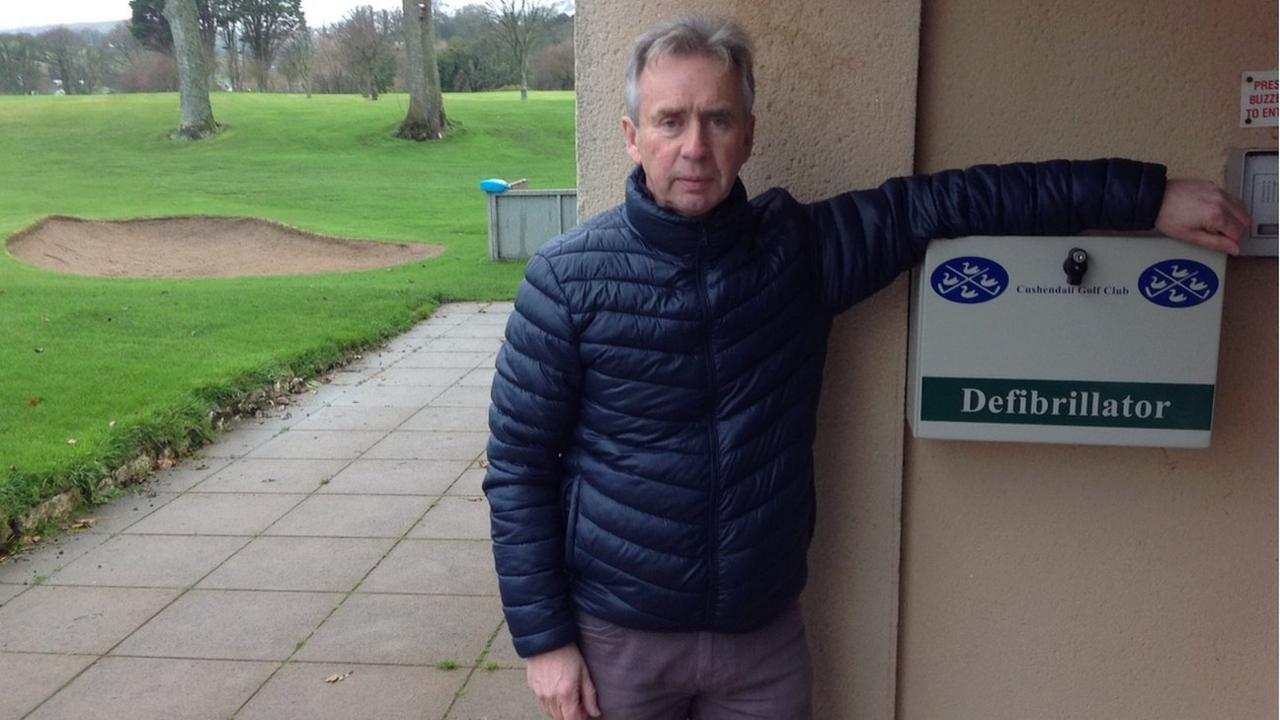Defibrillator: Mum wants devices registered after cardiac arrest
- Published
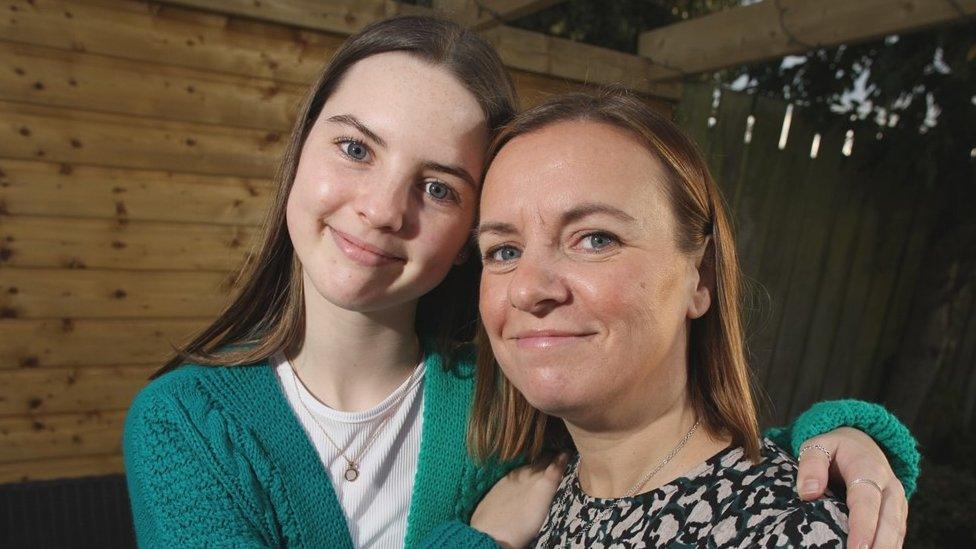
Lucy King, pictured with her mum. was just 13 when she collapsed in her home last February
A Coleraine woman whose daughter had a cardiac arrest is calling for owners of defibrillators to register their devices on a national database.
Lucy King was just 13 when she collapsed last February.
It was the quick actions of her family, who performed CPR and got a defibrillator from the local shop, that helped save her life.
Lucy's mother, Nicola King, is urging people to register any defibrillators on The Circuit app to help save lives.
The database connects the life-saving devices to NHS ambulance services across the UK.
Speaking to BBC Radio Foyle, Nicola, a former Intensive Care Unit nurse, recalled the family's horrifying experience.
Lucy had been asleep and was at home with her mum, dad, Richard, and siblings, Thomas and Olivia, when the incident happened.
'She just collapsed'
"It was just after six in the morning and Lucy made this really weird, loud noise and we just thought she was just having a bad dream, but then it went on for a bit," she said.
"So we jumped out of the bed and ran into her room and she was sitting upright in her bed, her arms stretched out and her eyes were open, but she wasn't really there.
"Then very quickly she just collapsed into the bed."
Ms King said she went into "autopilot as a nurse" and pulled her onto the floor and began performing CPR on her daughter.
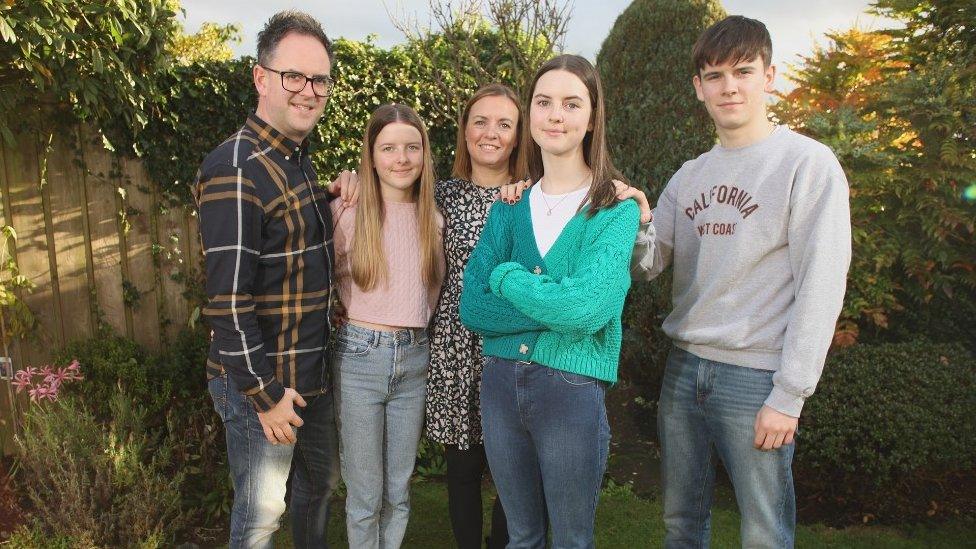
It was the quick actions of Lucy's family, who performed CPR and ran to the local shop to get a nearby defibrillator, that saved her life
Meanwhile, Thomas, who was 15 at the time, ran out to a nearby shop in his pyjamas to fetch a defibrillator.
"We kept doing CPR and then 10 minutes later the paramedics arrived and they started working on her," Ms King said.
"She needed shocked twice, the first time they shocked her they started to do CPR so I thought: 'It hasn't worked and we've lost her.'"
"They then shocked her again and they said that we got her back and she was then intubated and ventilated."
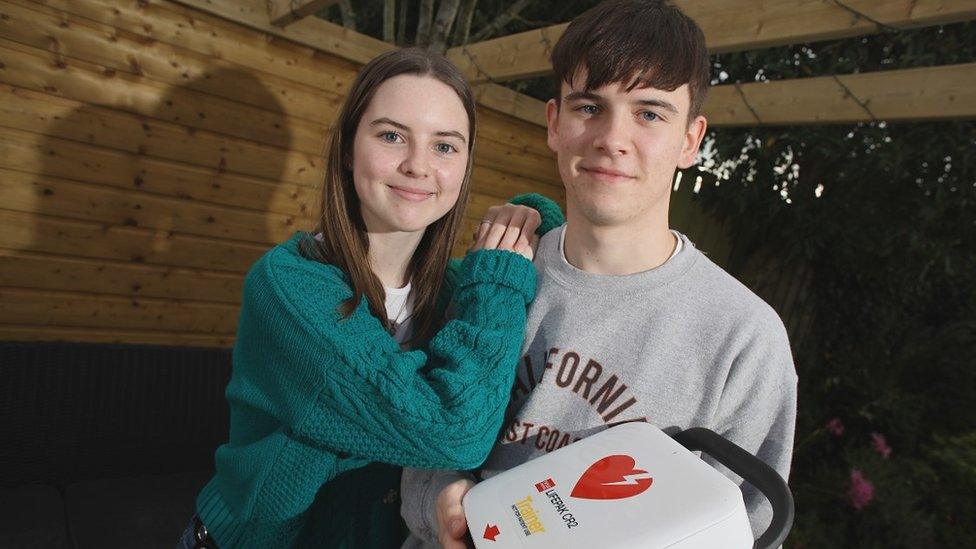
Lucy pictured with her brother, Thomas, who ran to a local shop to get a defibrillator
Lucy was transferred to the Royal Hospital in Belfast where she remained in intensive care for three days. She had a pacemaker fitted and was in hospital for three weeks.
The champion Irish dancer had to use a wheelchair and had to learn to walk and talk again.
Lucy had also lost her short-term memory due to the cardiac arrest, but this is improving.
She is back dancing and has a classroom assistant to help her at school.
Ms King said Lucy's story of survival is proof of the importance of knowing CPR and performing quick defibrillation.
"She wouldn't be here, she would've died if that defibrillator wasn't there," Mrs King said.
"You can't keep doing CPR on and on - you need the defibrillator there."
'It will save lives'
Both the British Heart Foundation and Northern Ireland Ambulance Service have backed the campaign for registering defibrillators on The Grid.
Since The Circuit app went live last February with the NIAS, emergency call handlers have directed people at the scene of a cardiac arrest to the nearest defibrillator 582 times.
"We have lots of defibrillators everywhere, but not all of them are registered on a grid," Ms King explained.
"So if something, like what happened to Lucy, happens, people who ring 999 can know where a defibrillator is."
Related topics
- Published18 May 2016
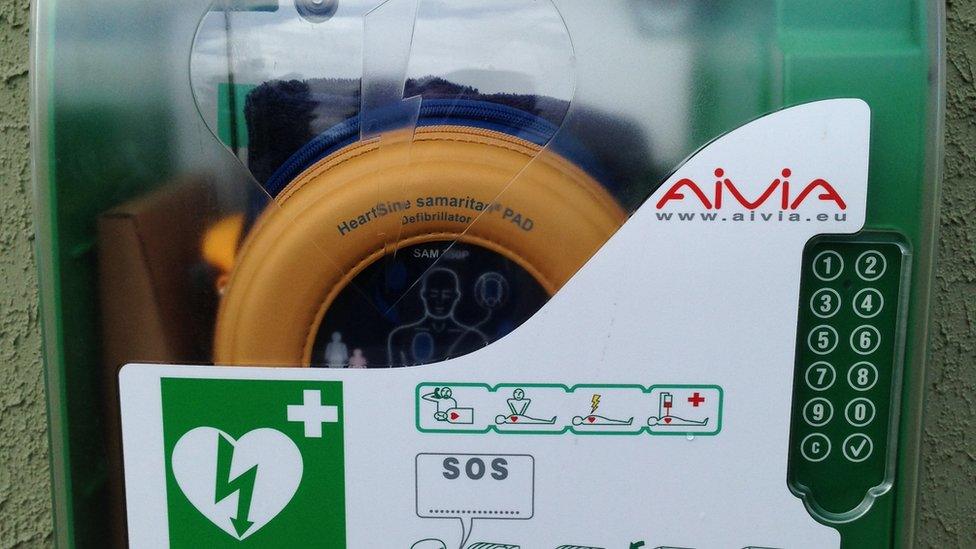
- Published6 December 2020
